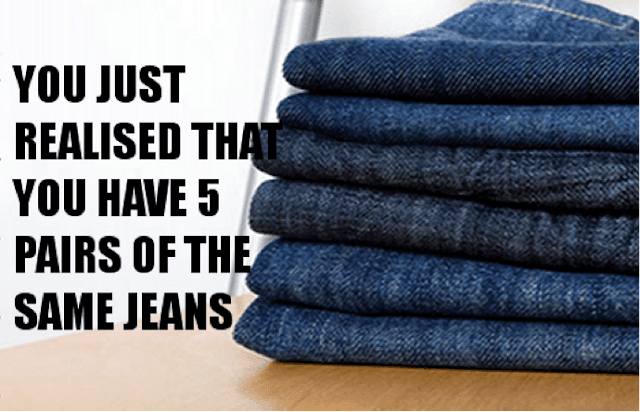There has never to my memory been a single image that has created such a pronounced, and largely negative response for me in the realm of Attire. This image from Vogue Nippon, October 2001 is as in your face an admonishment about what we are expected to do as anything I've ever encountered.
While I fully understand that this cover and text may have been meant satirically, its point is valid. Though we are not meant to literally die if we do not actively support the apparel industry, we risk being made symbolically dead, by being perceived as non-players.
We have constructed a machine of apparel consumerism so huge that nearly
half the people on the planet depend upon it in one way or another. When you consider the myriad layers involved in production and distribution on a global scale, the number of people involved becomes impossible to accurately tally. And in order for this gargantuan edifice of production to continue to prosper in the way it has been, we must purchase. We must do so again and again, continually, or the entire thing collapses. We have built something so enormous that it cannot manage to maintain itself simply with a reasonable input on our part. It can only be supported by an ever increasing outlay from consumers like thee and me.
In this manner it has become something cancerous, and we need to rein it in, somehow, before it expires of its own weight. But how do we do this? The answer is quite simple really. When we choose to shop for clothing or accessories, make up or and other things relating to Attire, we should do so mindfully. By doing so we can slowly decrease the overly inflated industry incrementally, diminishing the negative impact. What we need to give over is the impulsive shopping that has become an essential part of this brobdignagian industry. We must give over the greed that sits at the center of so much of modern life, a greed that is born mostly of fear of loss.
Our Western culture in particular has a nasty little secret at its heart, one that pervades nearly everything we do. We have been inculturated for centuries that whatever we have is not good enough, that more is of its own, somehow better, than less. We have been taught that making a living means not simply surviving and thriving, but having lots of excess income with which to fill our homes and our closets with stuff. Our media continues to support this notion, and certainly the apparel industry could not survive in its current version without it. It is not good enough to have a few pairs of well made shoes, we must have lots of them. A couple of pairs of jeans aren't good enough. We must have dozens. Some nice pieces of jewelry are not sufficient. We must have needless arrays of differing options.
I am every bit as guilty of this sort of over-consumption as the next person. I am working to shift my focus, to change over to a more mindful sort of consumption. And I realize also that this very blog, and the baseline premise from which I operate here, depends on there being options available to each of us from which to choose our daily visual expression. So what I am trying for personally and with this concept here, is to find a balance between the need for expression and variability within that expression, and the need to be responsible about what we do in the world.
I do think we can make this happen, and it will require us all to take more care, to give more thought to where and how we purchase the things we do. Perhaps we should take a leaf from the Europeans, who often have tiny apartments with tiny closets. Plus, clothes are much more expensive there, so people choose with greater care, and make their clothes work for longer periods.
Our real end point is this. It is one we cannot ignore without peril There are rising 8 billion of us, and within 10 years the prediction is 10 billion. The idea of us consuming without regard to what we do endlessly has no validity. it is in fact an insanity. If we are willing to have a care for the rest of the world, then this must cease. We must pull back, retrench, and learn to live smaller.



No comments:
Post a Comment